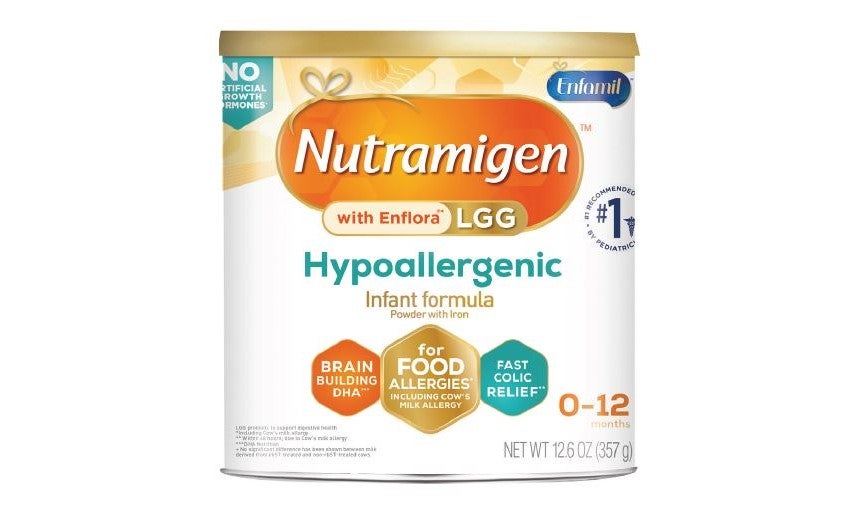Reckitt Benckiser has recalled batches of Nutramigen Powder infant formula in the US due to possible contamination from the Cronobacter sakazakii bacteria.
The voluntary recall was initiated by Reckitt Benckiser’s Mead Johnson Nutrition (MJN) business and was announced in a statement from the London-listed company on Saturday 30 December. The US Food and Drug Administration (FDA) has also distributed the same statement.
Meanwhile, the Canadian Food Inspection Agency also put out a note on the Nutramigen Powder recall yesterday (1 January).
Reckitt Benckiser said, however, that tests carried out by MJN proved negative for the pathogen, which can cause serious illness, particularly in children. No illnesses nor adverse consumer reactions have been reported, the company added, noting its Nutramigen liquid formula and other nutrition products are not affected by the recall.
Batch numbers have been issued by Reckitt Benckiser with a use-by date of 1 January 2025 following sample tests outside of the US. The Enfamil brand of Nutramigen Powder caters to children with an allergy to cow’s milk and the recall is focused on can sizes of 12.6 and 19.8 ounces.
“All product in question went through extensive testing by MJN and tested negative for the bacteria,” Reckitt Benckiser said in the statement, which carried a warning over the Cronobacter sakazakii bacteria.
It can cause “severe, life-threatening infections (sepsis) or meningitis”, the company said.
The same bacteria sparked a major infant-formula recall in the US in 2022 instigated by Abbot Laboratories, causing a shortage of product on shelves, although the company insisted at the time that there was no “conclusive evidence to link” its formula to child illnesses following investigations by the FDA and the Centers for Disease Control and Prevention.
Reckitt Benckiser was one of the companies that stepped in, along with Nestlé-owned Gerber, to plug the shortages. Abbott and those two companies were at the time the major infant-formula producers in the US. The FDA has since been opening up the market to overseas manufacturers to prevent a repeat of shortages on shelves, an incident that sparked an outcry among parents and politicians and emergency government measures.
The cans impacted by the Reckitt Benckiser recall at the weekend were “distributed primarily in June, July and August” in retail stores across the US, the company said.
“Based on the limited availability of the remaining stock of this special infant formula, it is believed that much, if not all, of the products recalled in the United States have been consumed,” the statement read. “There are no reports of illnesses or adverse events to date.“
Reckitt Benckiser advised parents to check cans of Nutramigen Powder for the batch numbers in question, advising that affected cans should be disposed of.
“We are committed to the highest level of quality and safety and it is for this reason that we have taken this measure. Other testing of the batches in question tested negative for Cronobacter and other bacteria,” Reckitt Benckiser said.
“The health and safety of infants is our highest priority. All of our products undergo rigorous and industry-leading quality tests and checks to ensure that they meet or exceed all standards set by regulatory bodies, including the World Health Organization and the US Food and Drug Administration.
“It is for this reason that we have confidence in the safety and quality of every infant formula we make.”
Reckitt Benckiser’s share price in London was relatively unchanged at 5,440 British pence ($6,919) today (2 January) as markets reopened following the festive holiday break.
Almost a year ago – in February 2023 – Reckitt Benckiser initiated another product recall over possible contamination from Cronobacter sakazakii. That incident was centred on the company’s ProSobee Simply Plant-Based infant formula.
The recall followed market speculation in 2022 that Reckitt Benckiser was considering selling its infant-nutrition business, which also includes the Enfamil brand. A potential sale was reportedly put on hold that year in the wake of the Abbott recall and product shortages.









